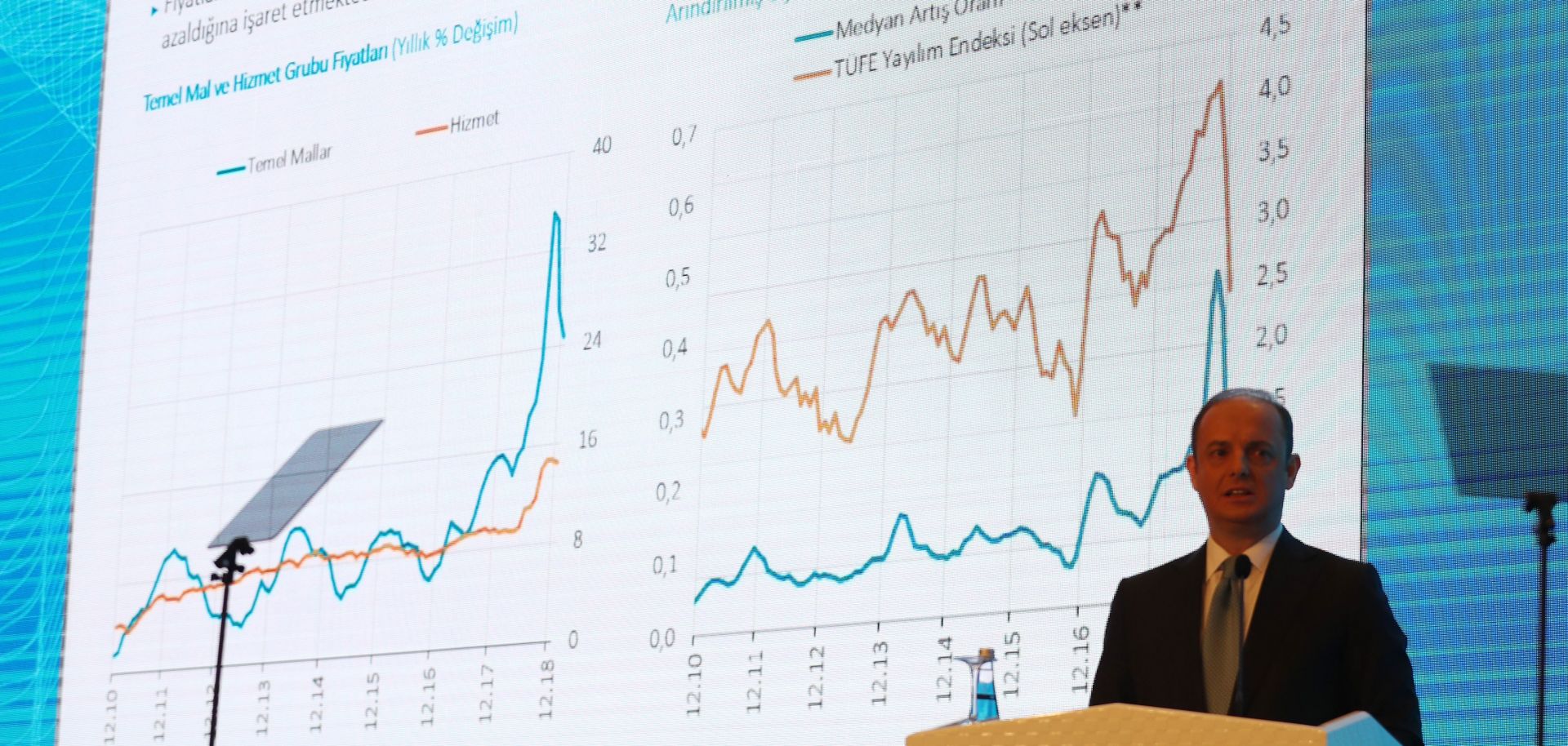ASSESSMENTS
Counting the Cost of Potential U.S. Action Against Turkey
Feb 4, 2019 | 12:00 GMT

Turkish Central Bank Gov. Murat Cetinkaya delivers a speech in front of inflation graphs in Ankara on Jan. 30, 2019. Washington could hit Ankara hard if the latter attacks the Syrian Kurds, although it might not want to do so too forcefully.
(ADEM ALTAN/AFP/Getty Images)
Highlights
- In response to any Turkish attack on the Syrian Kurds, the United States has the power to indirectly sway investor confidence in Turkey largely because of the lira's inherent volatility and the structural weaknesses of its economy.
- Turkey can't do as much economic damage to the United States, but it can create problems for Washington in the Middle East.
- Ultimately, the United States will limit the economic and diplomatic damage it can inflict on Turkey, in part because both wish to maintain the security and economic benefits their relationship provides.
Subscribe Now
SubscribeAlready have an account?
